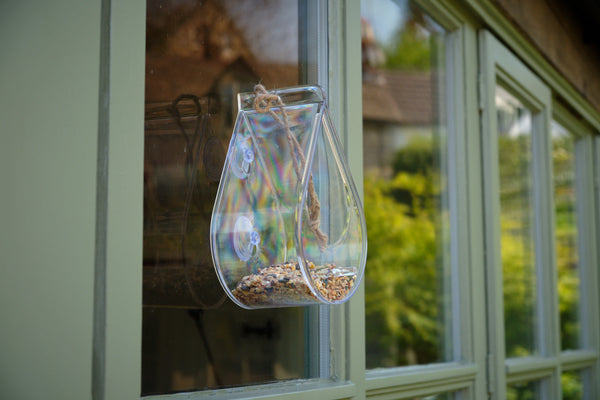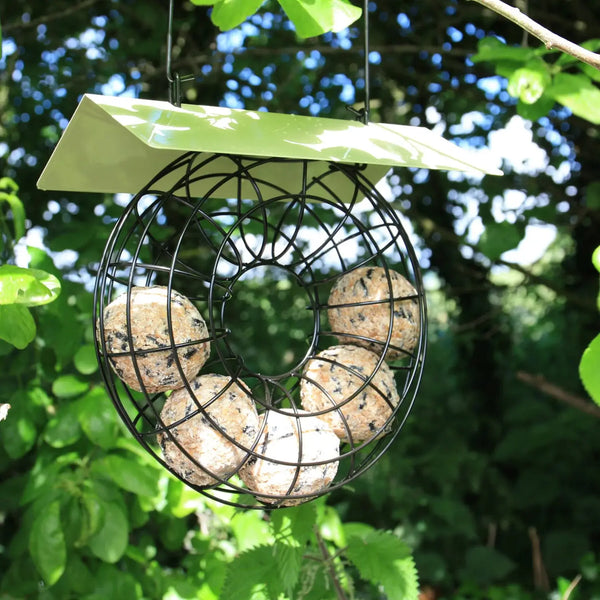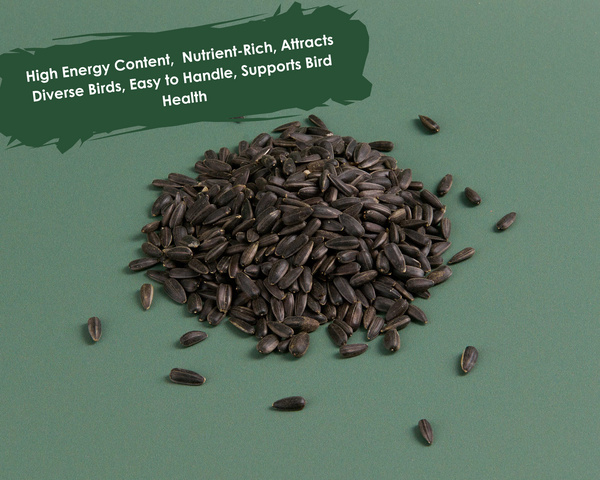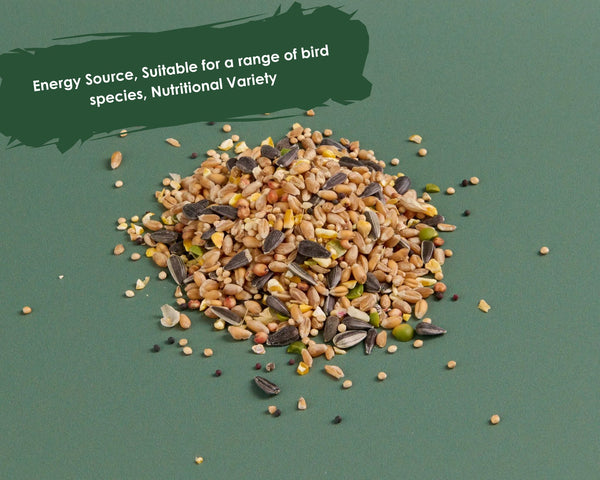The Dos and Don'ts of Feeding Birds in Your Garden: Keeping Them Safe and Healthy
Feeding birds in your garden is not only a great way to attract beautiful and fascinating birds to your back garden, but it can also provide a number of benefits to the birds themselves. By offering a variety of nutritious foods and bird feed and providing a safe and comfortable environment, you can help support the health and well-being of the birds that visit your garden. In this blog, we'll explore the dos and don'ts of feeding birds in your garden and discuss the many benefits of this rewarding activity.
Bird feeding can provide a valuable source of nutrition for birds, especially during the colder months when food is scarce. Offering a variety of high-quality foods, such as seeds, nuts, fruits, and suet fat balls, can help birds maintain their energy levels and stay healthy. In addition, bird feeding can help support the survival of certain bird species, particularly those that are experiencing habitat loss or other threats to their natural food sources. By providing a reliable source of food, you can help these birds thrive in your garden and beyond.
Another benefit of feeding birds in your garden is the opportunity to observe and appreciate these beautiful creatures up close. Bird watching is a popular hobby that can be enjoyed by people of all ages, and feeding birds in your garden can provide a front-row seat to the fascinating behaviours and interactions of these winged visitors. Whether you're a seasoned bird watcher or just starting out, feeding birds in your garden can provide endless hours of enjoyment and education.

DO: Provide a Variety of Foods
Different species of birds have different dietary needs, so it's important to offer a variety of foods to attract a diverse range of birds. You can provide seeds, nuts, fruits, and suet to attract different species of birds. It's also a good idea to provide fresh, clean water for drinking and bathing.
DO: Clean Your Feeding Stations Regularly
Dirty bird feeders can spread disease and be harmful to birds. Be sure to clean your feeding stations regularly with warm, soapy water and a brush. Rinse thoroughly and allow to dry completely before refilling.
DO: Position Your Feeders Properly
The location of your feeding station is important for the safety of the birds. Place your feeders in a spot that is visible to you, but away from any areas where predators may hide. Keep your feeding station at least 10 feet away from any shrubs or trees to prevent squirrels or other animals from jumping onto the feeders, you could also invest in a Squirrel proof bird feeder that keeps the food safe for birds.

DON'T: Use Bread or Table Scraps
Bread and other human foods may seem like a good option for feeding birds, but they can actually be harmful. Bread offers little nutritional value and can cause health problems for birds, such as malnutrition and obesity. Table scraps can also be harmful, as they may contain salt, spices, or other ingredients that are not suitable for birds.
DON'T: Overfeed the Birds
It's important to provide enough food for the birds, but be mindful not to overfeed them. Overfeeding can lead to the accumulation of excess food that can attract pests, such as rodents or insects. Additionally, too much food can lead to a buildup of waste, which can be harmful to the birds and create an unsanitary feeding environment.











